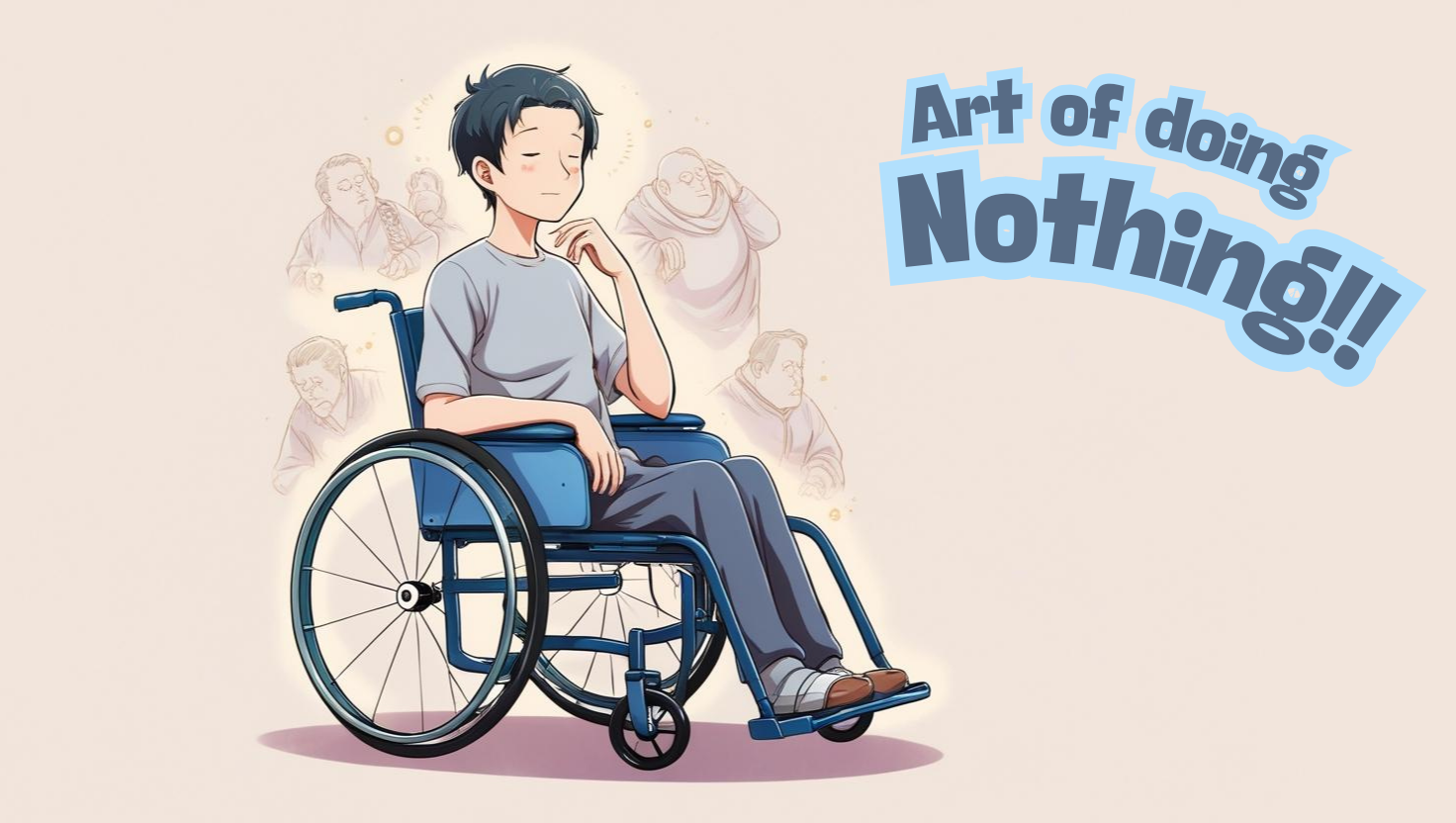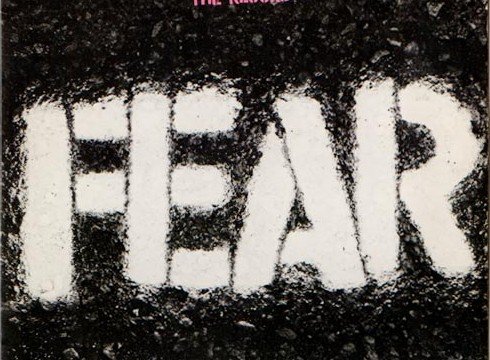Life in the Fast Lane (Until It Wasn’t)
All my life, I had been in motion—literally and metaphorically. Be it revving up an engine till it screamed for mercy, burning rubber just for the hell of it, or taking impulsive road trips with no destination in mind. My life had a rhythm, and that rhythm was fast.
Then life pulled the handbrake. Hard.
For someone who thrived on speed, the sudden shift to a world where waiting became the default setting was… let’s just say, humbling. I wasn’t prepared for it. Not for the long, unblinking stares at a hospital ceiling, not for the excruciating patience required to wait for bureaucratic paperwork, and definitely not for the slow-moving elevators that made me question the laws of physics.
The Struggle Against Stillness
It’s funny how no one teaches you the art of doing nothing. No manual, no life hack, no quick tutorial. Just a brutal, firsthand lesson in patience.
At first, I resisted. My mind raced even when my body couldn’t. I wanted to move, to do, to control. But reality had other plans. I had to sit through things—literally and figuratively. The unending wait at government offices, the excruciatingly slow process of getting into cars, the eternal struggle of watching people around me rush while I had to carefully plan each movement.
Even the most mundane tasks—things people don’t even think twice about—now required military-grade planning. If someone needed to get ready for office, they could wrap it up in 15 minutes, maybe 20 if they took an extra-long shower. For me? Two hours, minimum.
Everything had to be broken down into steps. Transferring from bed to wheelchair, positioning my legs properly, taking my time in the bathroom, dressing up piece by piece—there was no rushing it. I learned that if I didn’t plan things well, I’d be running late, not by minutes, but by hours.
And that was just the morning routine. Getting into a car? A calculated process. Going out? A checklist of logistics. Even something as simple as crossing a crowded street meant factoring in people’s unpredictable movements, uneven sidewalks, and the occasional clueless pedestrian who’d step right into my path without realizing it.
At first, it frustrated me beyond words. I hated how everything took so long. But then, I started to accept that this was my new normal. I had two choices—keep fighting it or learn to work with it.
Pillars of Strength: Family, the Ultimate Backup System
If there’s one thing I realized in all of this, it’s that you can’t do it alone.
No matter how independent you were before, no matter how much you prided yourself on handling things solo, life has a way of humbling you.
For me, that realization hit hard in the first few months after the accident. The simplest things—things I never even thought about before—were suddenly dependent on others. At first, I resisted help. I didn’t want to be seen as weak or incapable. I wanted to prove that I could manage on my own.
But then, I saw something I hadn’t paid attention to before—the people around me weren’t just helping me because they had to. They wanted to.
My mom somehow knew exactly when I needed help before I even asked. My friends made sure every outing was planned in a way that I could be part of it without feeling like an afterthought. There were days I felt down, frustrated, or just plain angry at how things had changed, and they stuck around—knowing when to push me, when to let me be, and when to just sit in silence with me.
And then, there’s my dad.
A mechanical engineer. An ex-tank specialist in the Indian Army. A man who understands machines better than people, but when it comes to me, he reads every little glitch like a seasoned mechanic diagnosing an old engine. He knows exactly when I need a push, when I need a full-fledged repair job, and when I just need a simple refuel of motivation.
I don’t know how he does it, but the man teleports. If I’m in distress—be it a medical procedure 2,500 km away or just a rough day where I need some heavy-duty logistical support—he’s there. Instantly. No questions asked. He’s the one who hauls me to hospitals, to wheelchair repair shops, to places where people speak in mechanical jargon that neither of us understands, but he somehow figures it out anyway.
Sometimes, I feel bad for him—watching him take on the grunt work, watching him drop everything to be there for me. But then, I see the way he looks at me. That beaming pride in his eyes, that silent reassurance that no matter what happens, we’ve got each other’s backs.
And in that moment, it all makes sense. This is what bloodwork looks like. You stand by each other through thick and thin—no matter what.
Learning to Live in the Pauses
Now, I wouldn’t say I’ve mastered the art of patience—I still curse slow WiFi, I still roll my eyes when someone takes five minutes to back their car into a perfectly open parking spot, and I still mentally honk at people walking too slow in malls.
But somewhere along the way, I’ve learned to appreciate the pauses.
I used to see waiting as wasted time. Now, I see it differently. It’s time to think. Time to notice things. Time to breathe.
Patience isn’t about putting life on hold. It’s about understanding that life doesn’t always move at the speed you want it to—and that’s okay.
The Ultimate Realization (A Parking Lot, A Kid, and A Lesson in Perspective)
India is awesome when it comes to accessible infrastructure. And by awesome, I mean, if you’re in a wheelchair, forget about spontaneity.
One evening, I had gone to pick up my mom at Old Delhi Railway Station. Now, if you’ve ever been there, you know—it’s chaotic, it’s crowded, and it’s definitely not wheelchair-friendly. So instead of navigating that madness, I decided to wait in the car, parked in some corner of the lot, with nothing but honking rickshaws and street vendors for company.
That’s when I saw him—a tiny tea seller, maybe seven or eight years old, seated on the sidewalk. His focus wasn’t on selling tea but on something far more important. He had a pen and a piece of paper, or rather, an old carton with a plastic film on it. He was trying to write. And failing.
I watched him struggle for about ten minutes. Every few seconds, he’d shake the pen furiously, scribble harder, and then sit back, visibly annoyed. I could feel his frustration. Been there, kiddo.
I leaned over and honked. The kid snapped his head up, alarmed. I could tell he was mentally swearing at me but held back.
And as I sat back in my seat, I smiled.
Sometimes, those long pauses—the ones you think are pointless, frustrating, or just plain annoying—are actually meant for you to experience something beautiful that you couldn’t have planned.
It’s all about giving life a shot.


Wonderfully crafted article dear Chaddha !!Life is a journey. It happens. It’s literally immaterial you accept outcomes or not. Also, life is a journey as an individual. Family and friends are part of your experience and that decides how you navigate your life. You experience them as per your thoughts.Many of us wish to master it, control it. And yes few are able to achieve that (of course many improbable probabilities do play their role and I call it destiny) and few aren’t. But EOD nothing matters. Life has its own way to bring you to terms. Human mind has wonderful ability to adjust and see through the lens that brings its own perspective. I am glad that you got your own perspective.Best wishes!!Regards